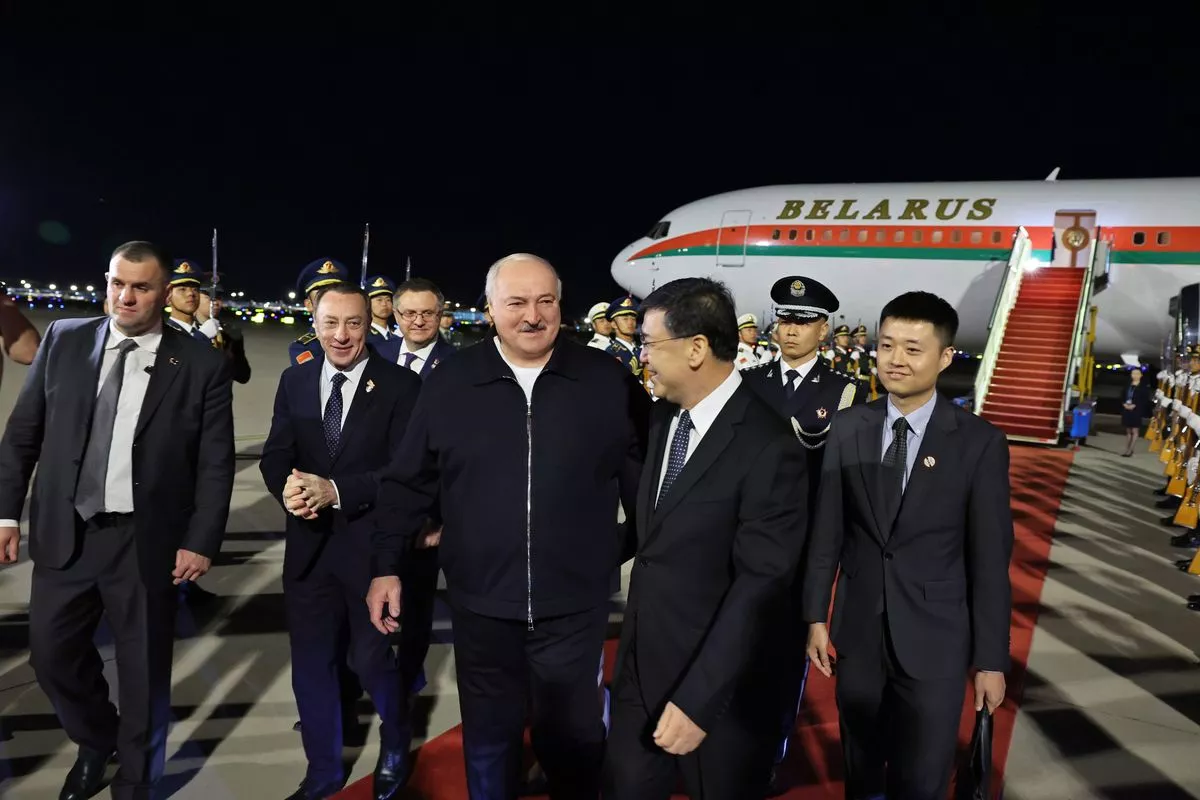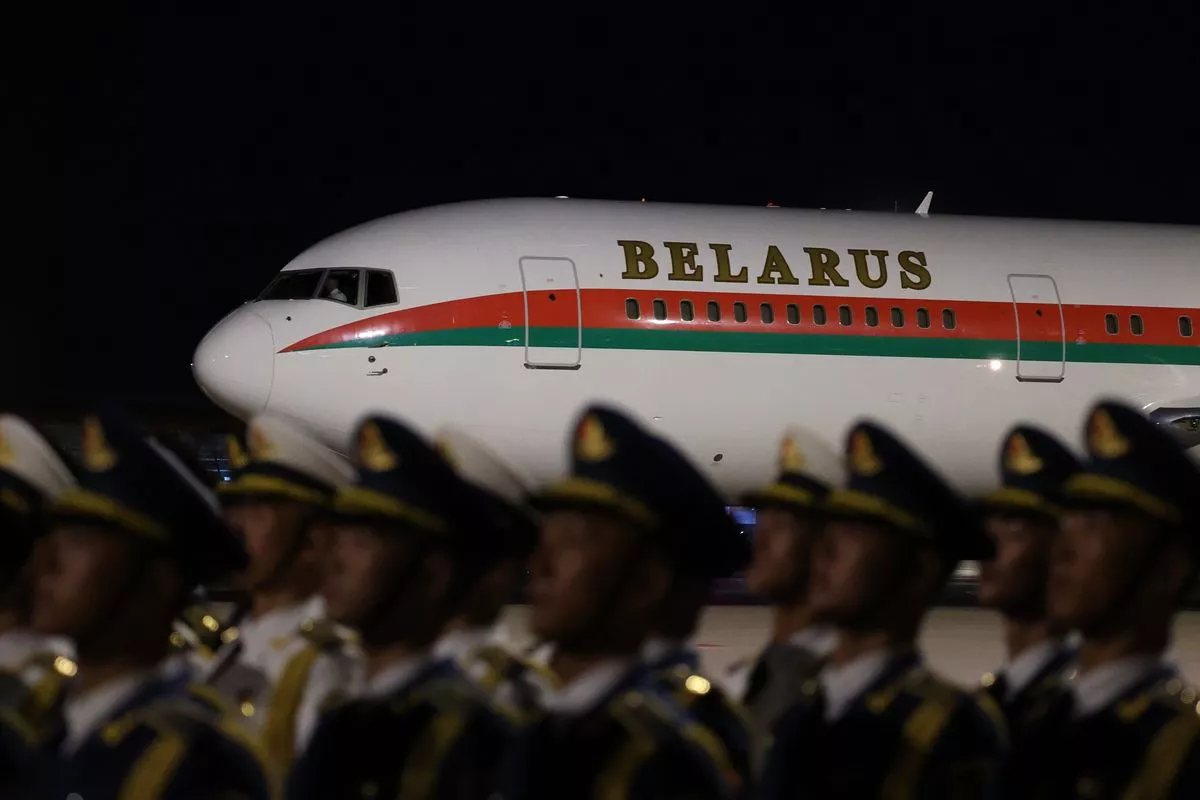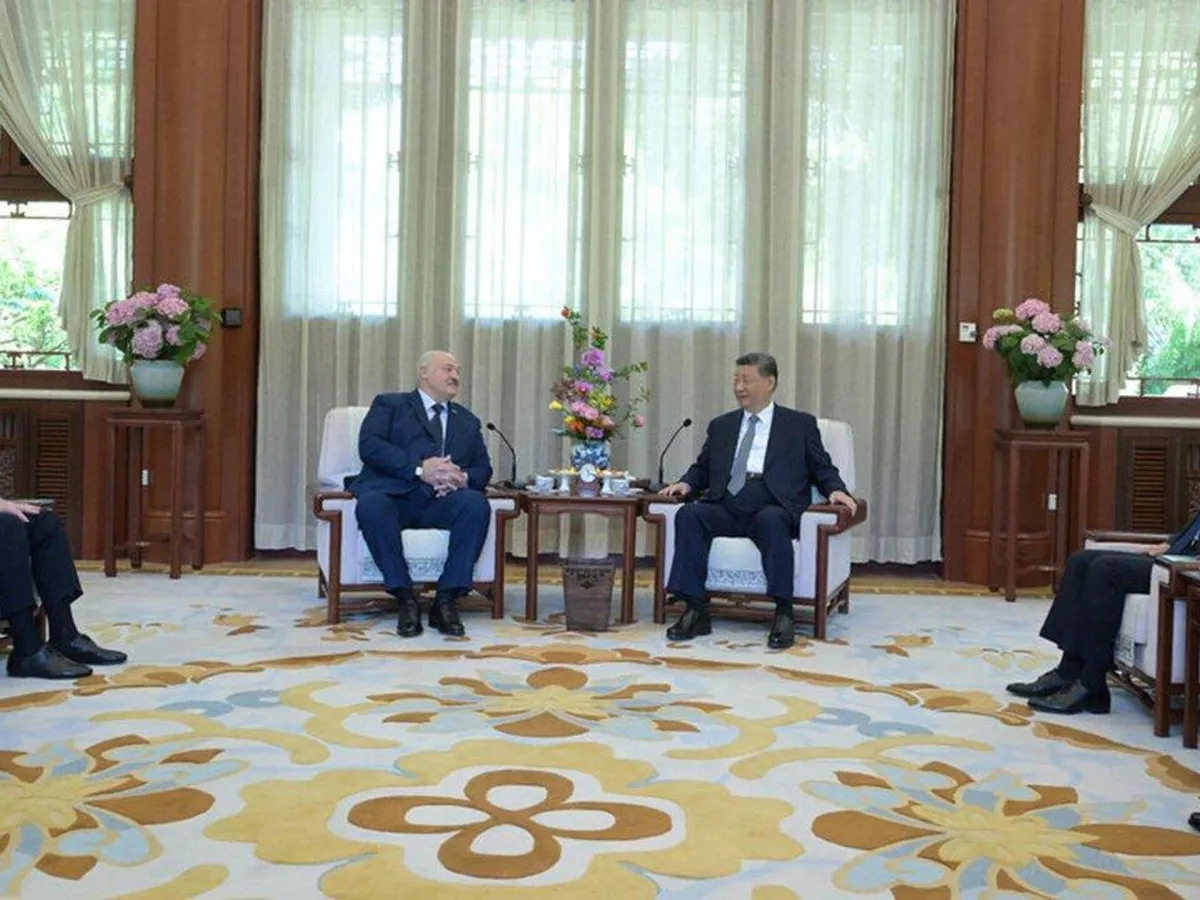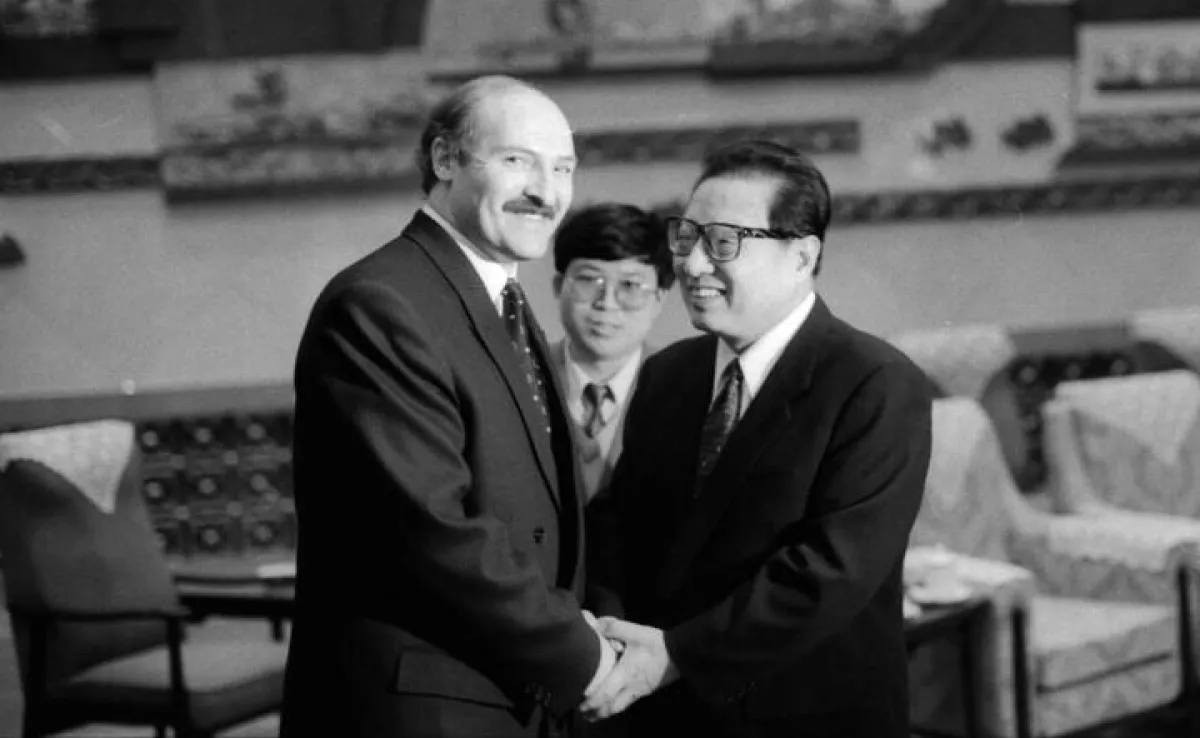China’s formula for Belarus Relations without blackmail or ultimatums
President of Belarus Alexander Lukashenko paid a three-day visit to China from June 2 to 4. Relations between Minsk and Beijing continue to deepen rapidly, demonstrating a rare level of political closeness and dynamic cooperation.
A moral foundation
Alexander Lukashenko has visited China 14 times, but this visit, as Belarusian Deputy Prime Minister Nikolai Snopkov noted in a comment to the BELTA news agency, is unique. It is neither a state, nor official, nor even a working visit. The official website of the President of Belarus described the trip as a "traditional friendly family meeting" between Alexander Lukashenko and Chinese President Xi Jinping.

According to Snopkov, the scheduled talks were an optional part of the visit, with the main emphasis placed on the friendly family-style lunch: “The entire trip was centred around this.” This format is not used with any other world leader. “Let the world see how cooperation should develop. China’s Belt and Road Initiative is not only an economic project but also a moral and ethical concept,” he added.
Belarus was quick to support China’s initiative of building a “Community of Shared Future for Mankind.” In the view of the Belarusian side, other global leaders should take a cue from the friendly model of interaction between Minsk and Beijing—especially in light of today’s international challenges.
“China will not allow the global order to be broken”
Nevertheless, the visit also featured a packed business agenda. Back in 2023, Xi Jinping proposed developing a partnership based on Chinese technologies and Belarusian industrial capacity, particularly in the fields of mechanical engineering and transportation.
In August 2024, the areas of industrial cooperation were further specified during a visit to Minsk by Chinese Premier Li Qiang. Just a week before President Lukashenko’s trip to China, Vice Premier of the State Council Liu Guozhong also visited Minsk, where he participated in a session of the Belarus–China Intergovernmental Committee.
On June 2, Alexander Lukashenko was met at the aircraft stairs by China’s Minister of Science and Technology, Yin Hejun. Despite the informal nature of the visit, it was accompanied by an honour guard of the People's Liberation Army and a motorcycle escort.

On June 3, President Lukashenko held talks with representatives of Chinese business circles. While the composition of the delegation was not disclosed, it is known that both the real sector of the economy and the financial sphere were represented. “These were the right people for us—ready to work,” the Belarusian leader emphasised.
“As Xi Jinping says, everything should be done quickly—sometimes calmly, but quietly. That’s exactly how we work,” he added.
There was plenty to discuss on trade as well: over the past five years, the trade turnover between the two countries has doubled, reaching a record $8.6 billion in 2024. According to Belarus’s ambassador to China, Alexander Chervyakov, trade turnover grew by 40% in the first quarter of 2025, with Belarusian exports increasing by 18%. China has become Belarus’s second most important trading partner after Russia.
Following the events of 2020 and the imposition of Western sanctions, Minsk has intensified cooperation with China, viewing it as an alternative to unilateral pressure.
On June 4, Alexander Lukashenko met with Xi Jinping. The talks began over a traditional Chinese tea ceremony and then continued one-on-one. The meeting took place at Xi Jinping’s residence in Zhongnanhai and concluded with a friendly lunch. The Belarusian leader, in turn, invited the Chinese president to visit him at home.

The meeting lasted two and a half hours. China’s Foreign Minister Wang Yi also participated. Discussions focused on technological modernisation and mechanical engineering, as well as strategic challenges and the geopolitical situation.
“You rightly pointed out the peculiarity of our times — unprecedented pressure from the West, primarily on China. Today, the attention of many countries, including Belarus, is focused on Beijing,” Lukashenko said.
“China has endured, will endure, and will not allow the global order to be broken. This view is shared by many nations and heads of state,” he emphasised.
Xi Jinping invited Alexander Lukashenko to participate in the SCO summit and the grand military parade to be held in Beijing in late August to early September. Belarus became a member of the SCO in 2024. The parade will commemorate the victory in the “World Anti-Fascist War.”
The Chinese leader noted, “Traditional friendship between our countries is strengthening, political mutual trust is growing, and cooperation is developing in all spheres. Together, we stand against hegemony and defend justice and equality.”
At the airport farewell, Belarus’s president was seen off by China’s Deputy Foreign Minister Liu Bin, whom Lukashenko remarked, “The Chinese comrade speaks Russian well.” According to Lukashenko, the visit went “better than could be imagined,” and the agreements open a “corridor” for action on both sides.
Russian media noted that the visit was accompanied by “intrigue and a veil of mystery.”
“All-weather” friendship
Belarus exports potassium fertilisers, meat and dairy products, eggs, honey, timber, and vegetable and animal fats to China. China supplies cars, electronics, medical equipment, and plastics. The trade balance remains in favour of China, but Belarus holds an important place in China’s Belt and Road Initiative.

Lukashenko’s first visit to China took place in January 1995. Even before becoming president, he advocated following the Chinese model, which combines economic efficiency with a strong role for the state.
Since 2001, following a visit to Belarus by then-Chinese leader Jiang Zemin, Belarus has pursued a course towards strategic partnership with China. Since 2008, 27 joint projects have been implemented, including the electrification of the Belarusian Railway, the construction of cement plants, the modernisation of industrial facilities, and the launch of automobile factories “BelGee” and “Unison.”
Since 2017, the industrial park “Great Stone” has been operational — the largest joint project, dubbed by Xi Jinping as the “Pearl of the Silk Road” and described by Forbes as an “Emerald of economic growth.” In 2024, investments in the park reached $940 million. In May 2025, a direct rail link between Minsk and Beijing was inaugurated
Among the gifts from China are the construction of an international swimming pool and a UEFA football stadium in Minsk, worth $235 million. The Chinese language is taught in over 160 schools and 10 universities across Belarus and is also available as an option in the country’s centralised testing system.
Predictably, several Western media outlets reacted negatively to the visit, expressing displeasure that Beijing hosted the leader of a sanctioned state. There was also criticism of the statement about opposing hegemony and intimidation policies. For Minsk, however, this represents a path to diversifying its foreign relations. Beijing offers economic cooperation without political pressure.
Today, relations between Belarus and China officially carry the status of a “comprehensive and all-weather strategic partnership” — the highest level in the Chinese classification system, established only with a select few countries.
In Minsk, this friendship is valued highly, and there is no intention to abandon it.








